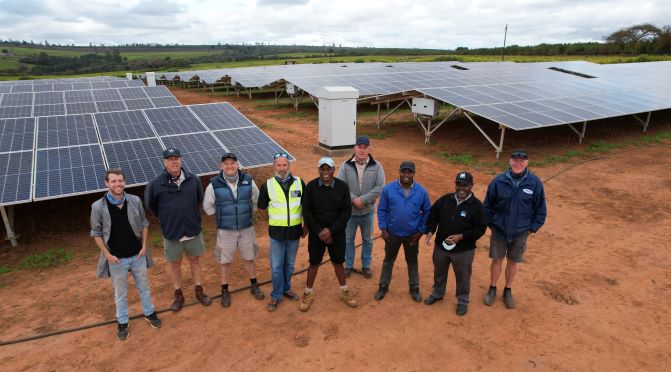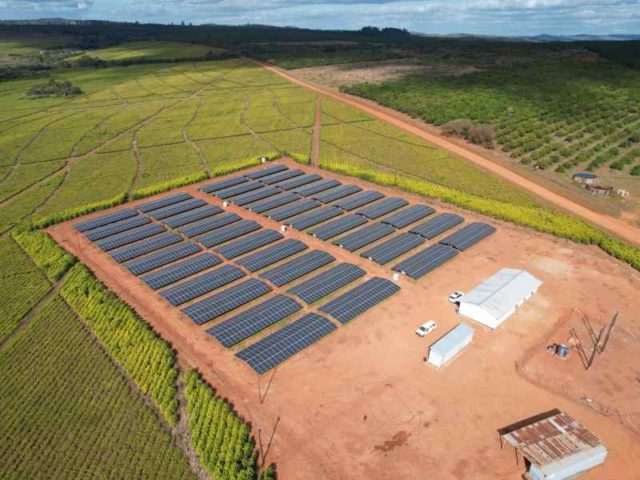In Zimbabwe, Blockpower completed the second phase and is in the process of implementing the third phase of a hybrid solar power system.
Source: Solar hybrid power is just the cup of tea for Zimbabwe farm
A tea farm in Zimbabwe is home to a 4.6MWp, 3MVA, 1,440kWh solar hybrid system implemented by Blockpower. The company recently completed the second phase of the project with the third phase well underway.
The farm is owned by Tanganda Tea Company Limited and is located on the Tanganda Tea Company’s agricultural estates (TTC) in the Chipinge district. The company is the largest producer, packer and distributor of tea products in Zimbabwe. They additionally operate several estates which also cultivate coffee, macadamia nuts and avocadoes.
Due to the inconsistent power supply in Zimbabwe, Blockpower was tasked to come up with a full turnkey solution to stabilise the delivery of power for the agricultural estates’ operations. “The client required a system that could be implemented to ensure a cost-effective, energy-efficient and environmentally friendly alternative power supply. A solution to safeguard the long-term sustainability of the business,” explains Sean Crisp, operations manager at Blockpower.
Kyle Bohnsack, director at Blockpower, adds: “The Hybrid solution designed and presented by Blockpower is a combined solar, battery and generator system incorporating the universal power platform (UPP) at its core which has subsequently been implemented on two estates.”
On the Tingamira Estate, the installation includes 1,2MWp solar PV. The PV is a ground-mounted structure design. A 478kWh battery storage with an 870kW battery inverter was installed in a locally manufactured climate-controlled container. “Importantly the solar array, battery storage and battery inverters are modular and scalable,” notes Bohnsack.

Solar hybrid power suitable for conditions in Zimbabwe
The estates were supplementing power with diesel generators often for more than 12 hours per day. The Blockpower solution addresses that by ensuring that power from the solar arrays, batteries and generators are utilised with the grid to keep the estates operational on a stable energy platform.
On the Jersey Estate, the installation includes a slightly larger 1,4MWp PV size, a 478kWh battery storage and an 870kW battery in a similar containerised solution. While on the Ratelshoek Estate the installation includes a larger 2MWp solar PV array, already installed, with the balance of the configuration, similar to the other sites, soon to be implemented.
These systems include both monitoring and control programmes. This is achieved by DHYBRID’s Universal Power Platform (UPP), which is installed alongside an operator Supervisory Control and Data Acquisition (SCADA) system. This makes it possible for the customer to have greater control of power source and consumption as the process is carefully monitored and remotely accessible.
The additional benefit of systems of this nature is the positive impact on the environment. It is estimated that the currently installed system will save approximately 4,000 to 6,000 tonnes of CO2 per annum for the lifespan of the system.
“Our ground-breaking solution for TTC allows for saving a substantial amount for our client, and Project payback is estimated to be between 3 to 4 years,” concludes Bohnsack.

COMMENTS